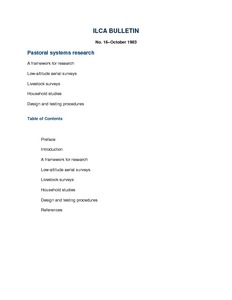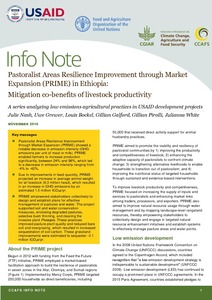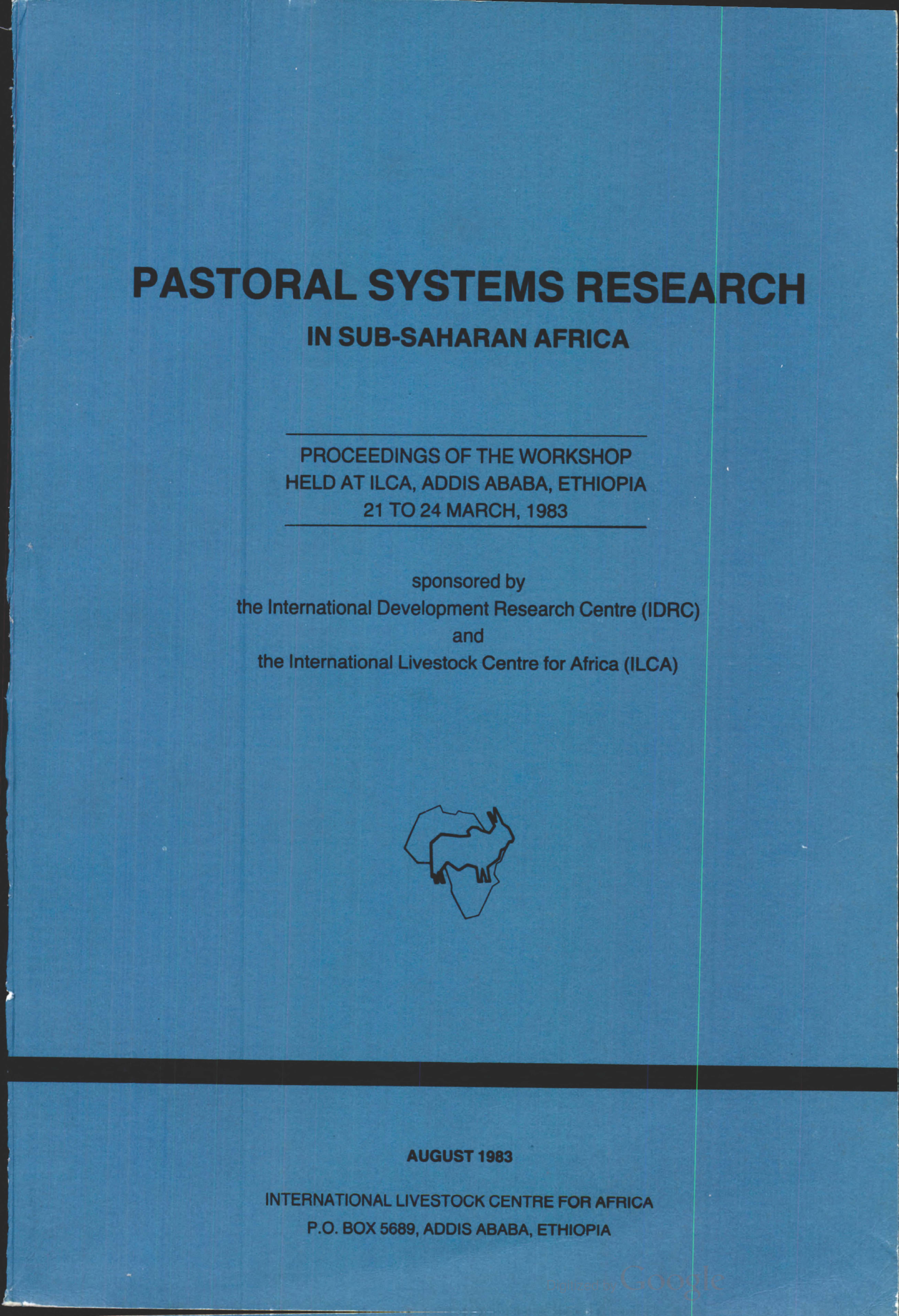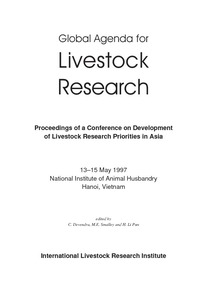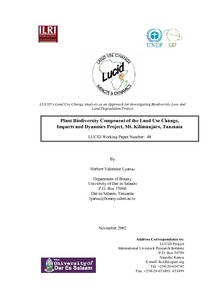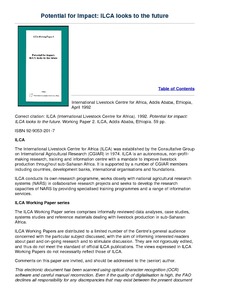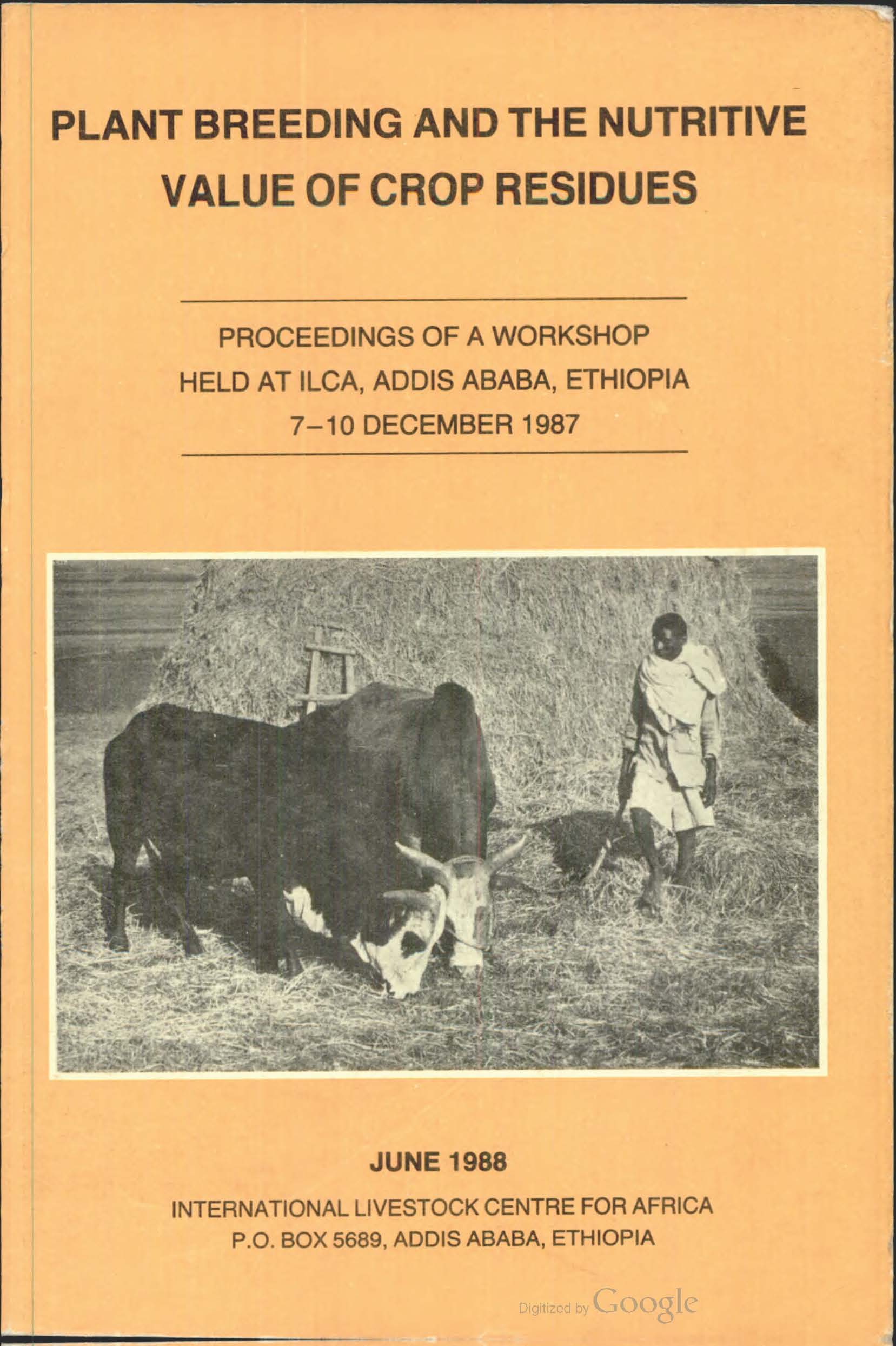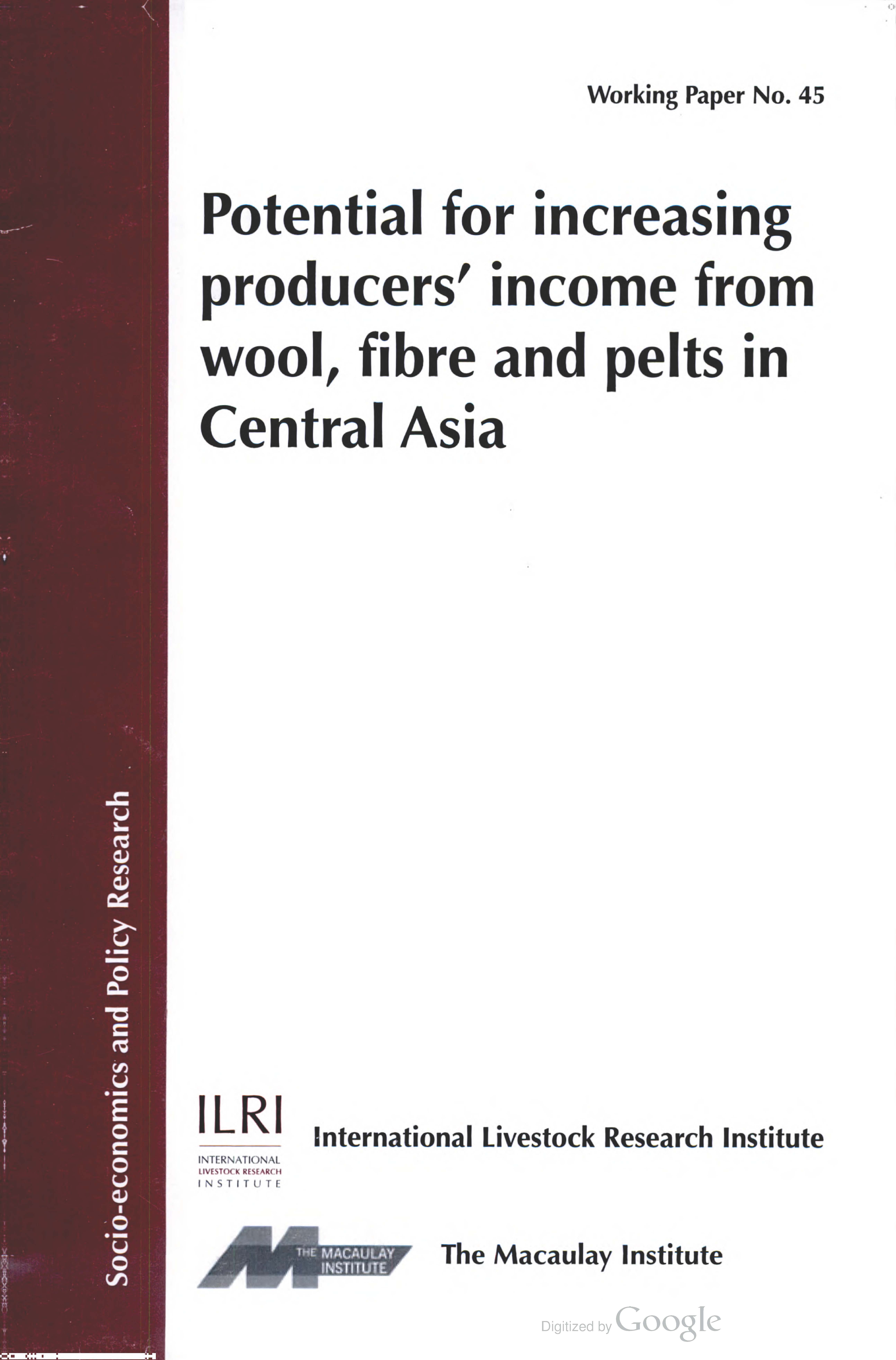terras de pastagem
AGROVOC URI:
Pastoral systems research
Selection of presentations made at the workshop on "Pastoral systems research in sub-Saharan Africa", describing the framework used by ILCA for pastoral systems research (PSR), examining methods used in the descriptive and diagnostic stage of PSR, and showing how the design and testing procedures are followed in practice; with particular reference to low-altitude aerial surveys, livestock surveys & household studies.
Pictures from the Field- East and Southern Africa
Pastoralist Areas Resilience Improvement through Market Expansion (PRIME) in Ethiopia: Mitigation co-benefits of livestock productivity
Pastoralist Areas Resilience Improvement
through Market Expansion (PRIME) showed a
notable decrease in emission intensity (GHG
emissions per unit of meat or milk). PRIME
enabled farmers to increase production
significantly, between 24% and 96%, which led
to a decrease in emission intensity ranging from
-4% to -42%.
? Due to improvements in feed quantity, PRIME
projected an increase in average animal weight
for all livestock (8.3 million head), which resulted
in an increase in GHG emissions by an
Pastoral systems research in sub-Saharan Africa
Presents a collection of conference papers defining pastoral systems research; the survey and diagnostic phase of pastoral systems research; ILCA's experience in remote sensing techniques and aerial surveys; survey of vegetation resources; livestock productivity and animal nutrition; pastoral production strategies, wealth effects, household studies, and labour data collection as well as livestock marketing studies.
Pictures from the Field North Africa & West Asia
Partnerships with NARS for technology transfer
The International Livestock Research Institute (ILRI) works through partnerships which are critical for two reasons: for collaborative research on key components and constraints and for the development, testing and transfer of technologies, based on farmer's needs. The ILRI programme designed to strengthen partnerships with NARS has a set of integrated activities, viz, training and training materials development, information products and services and networking.
Plant biodiversity component of the land use change, impacts and dynamics project, Mt Kilimanjaro, Tanzania
Potential for impact: ILCA looks to the future
Presents papers discussing the potential for impacts within ILCA's organisational framework and mandate. The introductory paper raises general issues and poses questions that are pursued in the other papers. These papers address the environmental, economic and social components of impact within the organisation. Case studies on ILCA's research on tenure policy and alley farming, forage legumes, animal traction, milk processing, hay making and studies on pricing policies, technology generation and ILCA's research networks are presented in the papers.
Policies in support of pastoralism and biodiversity in the heterogeneous drylands of East Africa
Plant breeding and the nutritive value of crop residues. Proceedings of a workshop
Presents papers dealing with the use of crop residues as livestock feed in smallholder crop/livestock farming systems, and the role of plant breeding in maintaining or improving their nutritive value. Discusses factors limiting the nutritive value of crop residues, and the effect of genotype and environment on the nutritive value of crop residues. Outlines perspectives and implications for crop improvement programmes. Includes recommendations.
Potential for increasing producers' income from wool, fibre and pelts in Central Asia
The systems of livestock production, marketing and research have been profoundly transformed by recent policies in Central Asia since the break up of the Soviet Union. Decollectivisation of state farms has transferred livestock ownership to new private farming units. These receive little or no state support for inputs, or for processing and selling livestock products. Most livestock-keeping families have much-reduced incomes compared to the Soviet period.


